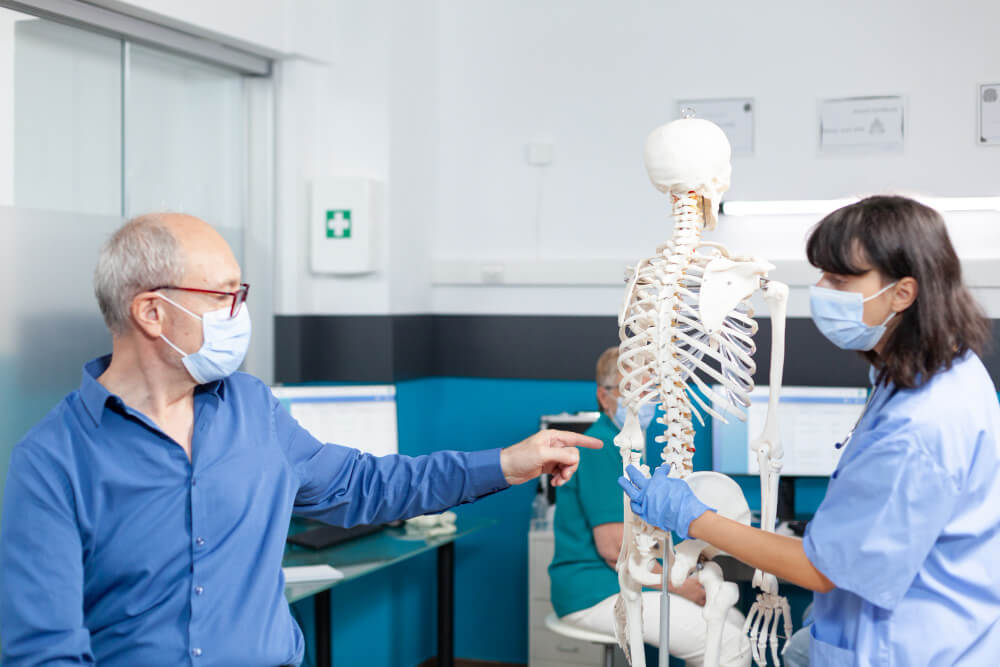Orthopedic Surgeons: Your Partners in Joint Replacement Surgery
Joint replacement surgery is a surgical procedure that involves replacing a damaged joint with an artificial joint. This procedure is often performed to treat severe arthritis or other joint conditions that cause significant pain and disability. Orthopedic surgeons specialize in providing expert care for patients undergoing joint replacement surgery.

Common Types of Joint Replacement Surgery
There are several types of Joint replacement surgery, depending on the affected joint. Some of the most common types include:
- Hip Replacement Replacing a damaged hip joint with an artificial joint.
- Knee Replacement Replacing a damaged knee joint with an artificial joint.
- Shoulder Replacement Replacing a damaged shoulder joint with an artificial joint.
- Ankle Replacement Replacing a damaged ankle joint with an artificial joint.
- Wrist Replacement Replacing a damaged wrist joint with an artificial joint.
When to Consider Joint Replacement Surgery
Joint replacement surgery is typically considered when other treatments, such as medication or physical therapy, have failed to provide relief from pain and disability.
- Severe Pain Intense pain that interferes with daily activities.
- Limited Mobility Difficulty walking, climbing stairs, or performing other activities.
- Joint Stiffness Stiffness in the affected joint.
- Loss of Function Inability to use the joint normally.
- Osteoarthritis Degeneration of the joint cartilage.
- Rheumatoid Arthritis An autoimmune disease that causes inflammation of the joints.
The Joint Replacement Surgery Process
Joint replacement surgery is a complex procedure that typically involves the following steps:
- Pre-Operative Evaluation A thorough evaluation of your medical history, including any allergies, medications, and previous surgeries.
- Surgical Procedure The surgeon will remove the damaged joint and replace it with an artificial joint.
- Recovery The recovery process after joint replacement surgery typically involves physical therapy to help restore strength and mobility.
Types of Joint Replacements
There are several types of joint replacements available, including:
- Total Joint Replacement Replacing the entire joint with an artificial joint.
- Partial Joint Replacement Replacing only part of the joint with an artificial component.
- Cemented vs. Cementless Replacements Joint replacements can be cemented or cementless. Cemented replacements are secured to the bone with bone cement, while cementless replacements are designed to grow into the bone.
Choosing an Orthopedic Surgeon

Selecting the right orthopedic surgeon for your Joint replacement surgery is crucial. Consider the following factors:
- Experience and Expertise Look for a surgeon with extensive experience in joint replacement surgery.
- Credentials and Certifications Ensure the surgeon is board-certified in orthopedic surgery.
- Hospital Affiliation Choose a surgeon who performs procedures at a reputable hospital with a good track record for joint replacement surgery.
- Patient Reviews Read reviews from other patients to get a sense of the surgeon’s experience and bedside manner.
- Consultation Schedule a consultation with the surgeon to discuss your needs and expectations.
Preparing for Joint Replacement Surgery
Preparing for joint replacement surgery involves several steps, including:
- Pre-Operative Testing Undergoing pre-operative tests, such as blood tests and imaging studies.
- Physical Therapy Preparing your body for surgery with physical therapy exercises.
- Arranging Post-Operative Care Making arrangements for transportation, home care, and rehabilitation.
Recovery from Joint Replacement Surgery
Recovery from joint replacement surgery typically involves a rehabilitation program to help restore strength and mobility. The length of recovery varies depending on the type of joint replaced and individual factors.
- Physical Therapy A physical therapist will work with you to help you regain strength, flexibility, and range of motion.
- Pain Management Pain medications may be prescribed to manage pain during the recovery process.
- Follow-Up Appointments Regular follow-up appointments with your orthopedic surgeon are essential to monitor your progress and address any concerns.
Joint replacement surgery can be a life-changing procedure that can alleviate pain, improve mobility, and enhance your quality of life. By choosing an experienced orthopedic surgeon and following your healthcare provider’s recommendations, you can maximize the benefits of joint replacement surgery and enjoy a better quality of life.
Contact Us for Advanced joint replacement services (972) 937-8900 Or visit us https://sccwaxahachie.com/
